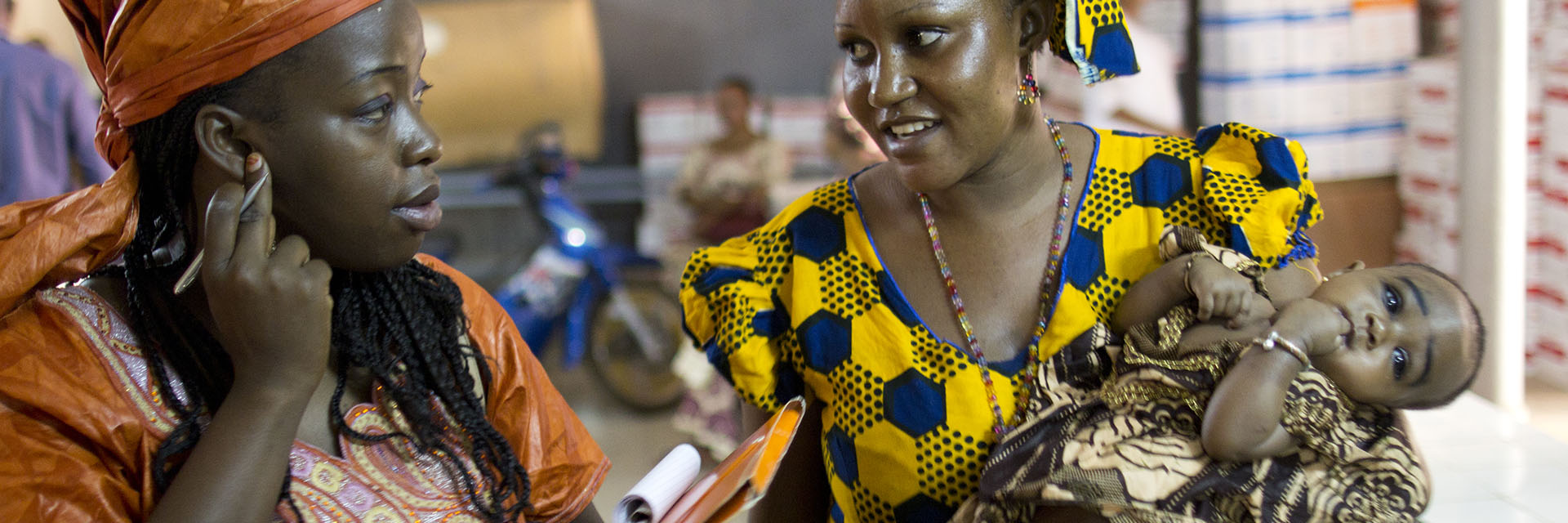Overview
- 2 Burkinabe employees
- RESAOLAB network member since 2009

Burkina Faso is one of the 7 member countries of the West African Network of Medical Laboratories (RESAOLAB) that we have created with the Ministries of Health of the member countries. Within this framework, Burkina Faso participates each year in training, laboratory supervision, quality assurance and external quality assessment.
Since 2009, we have implemented and financed, with our partners including the French Development Agency, several projects to provide the country with appropriate training structures, such as:
Since 2016, Burkina Faso has been part of the G5 Sahel Biosecurity Network, (alongside Niger, Mali, Mauritania and Chad). We are participating in this project alongside the Charles Mérieux Center for Infectious Disease in Mali, the German Agency for International Cooperation (GIZ), and the Bundeswehr Institute for Microbiology in Munich as part of the German Foreign Office’s German Partnership for Excellence in Biosecurity and Health Security program.
It aims to strengthen the capacity of these countries to better respond to biological threats by providing equipment, technical and practical training on the G5 Sahel mobile laboratory entrusted to the Charles Mérieux Center for Infectious Disease in Mali, theoretical and practical training in biosafety and biosecurity, and exercises to deploy the mobile laboratory in the field. The objective is to train a rapid response team of scientists from the five Sahelian countries who are qualified to work in the mobile laboratory. The project is supported by the Ministries of Health of the five G5 Sahel countries and technical support from the West African Health Organization.
We are a member of the consortium of the OASIS project (of the JPIAMR initiative) which aims to develop a surveillance strategy for antimicrobial resistance (AMR) in a unique health context, and applicable in high-, middle- and low-income countries. We are collaborating with the Université Nazi Boni de Bobo-Dioulasso in Burkina Faso and the University of Togo.
A new typhoid screening test, developed and validated on the basis of research conducted in Bangladesh, is being validated in Burkina Faso as well as in Nepal and Malawi. In Burkina Faso, the study is being conducted in partnership with the Schiphra laboratory and the International Vaccine Institute (IVI), with funding from the Bill & Melinda Gates Foundation.
In Burkina Faso, we support the country’s Samu Social in order to carry out care and prevention activities during night patrols with a medical truck, to provide medical follow-up and health education, and to advocate for access to health care for street children and young people. Local teams in Koudougou and Kongoussi are trained in Samu-Social intervention practices.
Previous
Revive
Pause